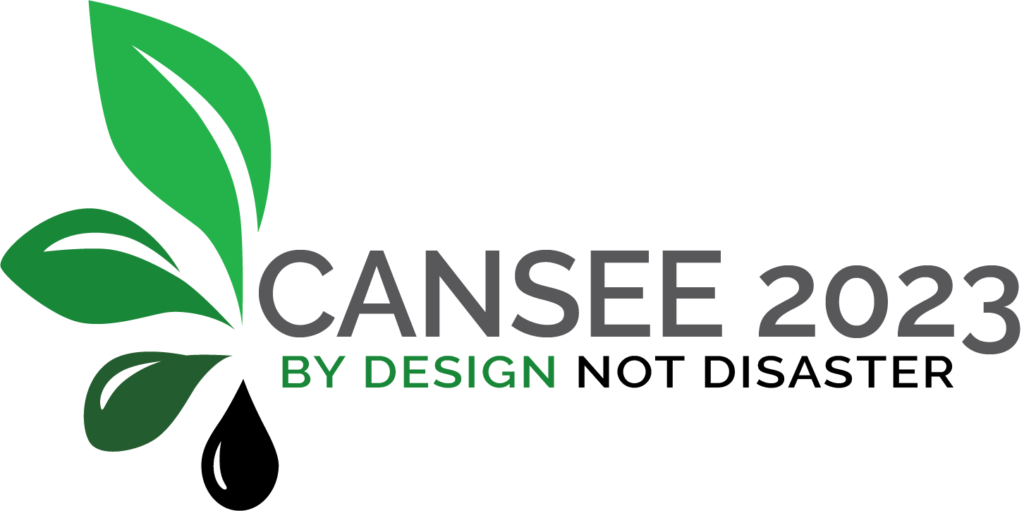
Exhibition
The complexity and urgency of interconnected global crises, such as the COVID-19 pandemic and climate change, has revealed vulnerabilities within our existing social, economic, and political structures and institutions. Meanwhile, Indigenous, First Nations, and Métis communities have shown tremendous fortitude and innovation, enduring and overcoming degradation within their lands and cultures.
This exhibit reflects the early stages of an ongoing partnership between the Canadian Society for Ecological Economics (CANSEE) and Indigenous Climate Action (ICA). In 2019, ICA Executive Director Eriel Deranger, critiqued the sustainability trend to repackage Indigenous traditions as new and innovative. Instead, she challenged ecological economists to re-centre Indigenous leadership within the field, and to embody true allyship. CANSEE acknowledges that many ideas now being embraced within ecological economics, originate from peoples and ways of life that were formerly erased by dominant, market-driven systems.
As a recent directive, CANSEE strives to honor the knowledge, wisdom, and voices of Indigenous peoples in shaping ecological economics (EE) and transformative systems change, across Canada. While EE has been gaining more prominence over the last three decades, scholars have yet to adequately address and reconcile the colonial foundations of its scientific principles. With this in mind, in 2021, CANSEE and ICA co-organised an independent conference, Indigenous Economics: Reclaiming the Sacred, hosted by Indigenous peoples for Indigenous peoples.
The images presented here represent drawings that were created live throughout the keynote and panel discussions. As you explore this space, consider which terms and topics stand out to you, and why. How does your own intellectual or practice-based approach fit into this discourse, and how might these reflections advance or change your work? How else might we serve to champion Indigenous voices, experiences, and leadership as part of global systems change? Contribute to this CANSEE2023 mural to frame our collective journey.

This free public, interactive exhibition will be hosted at the Ontario College of Art and Design University (OCADU) (100 McCaul St., in the main lobby, 17:30-19:30 EST) in partnership with RSD12-TORONTO.

Jayce Chiblow
Jayce Chiblow (she/her) is Anishinaabe from Garden River First Nation, Ontario. She has a Bachelor’s of Science degree in Biology and a Master’s of Environmental Studies. Jayce’s Masters research was conducted in her community, where she brought together youth, community leaders, and knowledge keepers in a workshop-style gathering focused on climate action through an Indigenous food sovereignty lens.
Jayce started with ICA in 2020, and has worked as the Community Engagement Lead and Toolkit Lead, where she supported the creation, dissemination, and implementation of ICA’s Toolkit and Climate Leadership Program. Currently, she sits as the Education and Training Manager, where she will continue to support ICA’s development of education and training programs/materials.
Angel Brant
Angel Brant (she/her) was born in British Columbia and was given the name Kôna. Since being adopted, her heart lies with the Mohawks of the Bay of Quinte—Tyendinaga Mohawk Territory, and identifies as Cree and Mohawk. She currently lives on the unceded traditional territories of the xwməθkwəy̓ əm (Musqueam), Sḵwx̱wú7mesh (Squamish), and səlilwətaɬ (Tsleil-Waututh) Nations.
Angel focuses her efforts on advocating for the recognition of Indigenous communities’ knowledge systems, art forms, and climate justice within so-called Canada. Angel works with Indigenous muralists to promote their work; she’s an Indigenous history tour guide, and a communications consultant working with Elders, Knowledge Keepers, community leaders, and youth on major land resource projects in the GTA. She looks forward to welcoming all youth voices and presence by creating a safe space to spark real change, grounded in movement building, land-based teachings, and optimism.
Her hobbies and interests include reading, hiking, camping, concerts, crafting, and spending time with her partner, friends, and family.
Jodi Koberinski
Jodi Koberinski is a SSHRC Doctoral Fellow at the University of Waterloo, whose work focuses on food systems governance in Canada’s settler-colonial context. Her research partners at the Traditional Ecological Knowledge Elders Group (Robinson Huron Treaty) seek to characterize the impacts of forestry practices on Treaty rights and Anishnaabek food systems. This research involves Indigenous environmental governance, food democracy, and forestry policy. Jodi completed her Master’s degree investigating the sustainability of Canada’s pulses sector with Dr. Steffanie Scott, her conceptualizations being informed by mentorship from Dr. Vandana Shiva, the late Dr. Shiv Chopra, and the late Cathleen Kneen.
A public intellectual and committed community educator, Jodi was a co-founder of the Dangerous Ideas Festival (Canada), the Praxis Project Permaculture-Inspired Art Festival (New Brunswick), and the global Seed Freedom Campaign. In her professional capacity, Jodi was a member of the Organic Value Chain Roundtable, and was a key figure in developing and promoting the organic sector’s “Think Before You Eat” Campaign. In recognition of her human rights work in food systems, Jodi was awarded the Oak Fellowship for the study of Human Rights at Colby College in 2015—where she served as the Visiting Activist. Complementing her academic studies, Jodi continues life-long climate activism.
Dr. Sophia Sanniti
Sophia Sanniti is the Research Associate for WRI’s Faith and Sustainability initiative, where she conducts rigorous research on the values, behaviours, initiatives, and assets of faith-based organizations to enhance their capacity as climate justice advocates. Prior to joining WRI, Sophia was the Ecological Economics Intern at the Vatican’s largest office—the Dicastery for Promoting Integral Human Development—where she drafted speeches and issue briefings on priority issues related to oceans, climate change, migration, and natural resource development.
She also has a proven track record for advancing sustainability principles in practice, particularly through her extensive community service experience with the Canadian (CANSEE) and International (ISEE) Societies for Ecological Economics. In 2019, Sophia Chaired CANSEE’s Engaging Economies of Change conference, which aimed to both celebrate and exemplify the types of alternative economies and societies ecological economists aim to foster. Sophia takes seriously the importance of embodying the change we wish to see, and implements this through principles of dialogue, partnership, and organizing.
Sophia holds a Master’s degree in Environmental Studies, which she completed in partnership with Economics for the Anthropocene (E4A) and the Centre for the Understanding of Sustainable Prosperity (CUSP), as well as a Bachelor’s degree in Environment and Business, which included work experience in both the public and private sectors.
